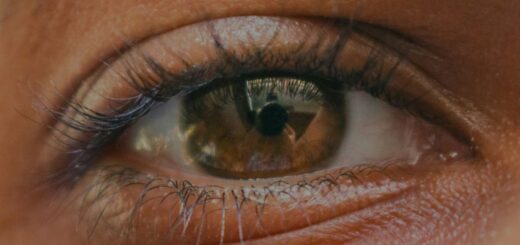Twelve Timeless Stories Retold

The shortest distance between a writer and a reader is a story. But since these stories are not originally mine but only retold, I shall, in the interest of honesty, say that the shortest distance between a re-writer and a reader is a story.
Stories have the power to illuminate the human experience, weaving lessons of compassion, antifragility, and reflection into the fabric of our lives. The tales gathered here — ranging from the poignant to the humorous, the allegorical to the deeply personal — offer glimpses into the choices that shape us.
It is easier to retell stories than to live by their lessons, but we must continue to remind ourselves of these universal truths, just as we ought to continue to try to live by them, because it is in tirelessly striving to do so, and with unending grace, that we define who we are and who we aspire to be .
Your Need is Greater Than Mine
This is a time-honoured tale of selflessness and empathy that is seldom remembered.
Shaka, king of the Zulus, once led his men to a cruel battle. The ground was covered with dead and dying men. The air was hot and stifling. The sun shone down without pity on the wounded warriors lying in the blood and dust.
His warriors loved Shaka for his fierceness and strategy. But now he lay among them, blood stitched his breath to the earth, and the heat pressed down like judgment. Thirst clawed at his throat, cruel as memory, and pain moved through him slowly and deliberately. Death did not care for kings.
When the battle was over, his friends hurried to his aid. A warrior came running with a cup in his hand.
“Here, my King,” he said, “I have brought you some clear, cool water. I will raise your head so that you can drink, my King.”
The cup was placed on Shaka’s lips. And how thankfully he looked at the man who had brought it! Then his eyes met those of a dying warrior who was lying on the ground close by. The wistful look in the poor man’s face spoke plainer than words. He was about to die.
“Give the water to that man,” said Shaka quickly, and then, pushing the cup toward him, he said, “Here, my comrade, take this. I need this water, but your need is greater than mine.”
Years later, when Shaka fell, among those who conspired against him was the very soldier whose life he had once saved.
“The Last Leaf” by O. Henry.
A woman nicknamed Johnsy has come down with pneumonia and is now close to death. Outside the window of her room, the leaves fall from a vine. Johnsy unreasonably decides that when the last leaf drops, she too will die, while her best friend, Sue, who stays with her, tries to tell her to stop thinking so pessimistically.
In the same apartment building, an elderly, frustrated artist named Behrman lives below Johnsy and Sue. Behrman has been claiming that he will paint a masterpiece, even though he has never even attempted to start.
Sue visits Behrman, telling him that Johnsy, who is dying of pneumonia, is losing her will to live. Sue tells Behrman that Johnsy claims she will die when the last leaf falls off the vine outside her window. Behrman scoffs at this as foolishness, but — as he is protective of the two — he decides to visit Johnsy and see the vine from her window.
In the night, a very bad storm comes, and the wind is howling and the rain is splattering against the window. Sue closes the curtains and tells Johnsy to go to sleep, even though there is still one leaf left on the vine. Johnsy protests against having the curtains closed, but Sue insists on doing so because she doesn’t want Johnsy to see the last leaf fall. In the morning, Johnsy wants to see the vine to be sure that all the leaves are gone, but to their surprise, there is still one leaf left.
While Johnsy is surprised that it is still there, she insists it will fall that day. But it doesn’t, nor does it fall through the night nor the next day. Johnsy believes that the leaf stayed there to show how wicked she was, and that she sinned in wanting to die. She regains her will to live and makes a full recovery throughout the day.
In the afternoon, a doctor talks to Sue. The doctor says that Mr. Behrman has come down with pneumonia and, as there is nothing to be done for him, he is being taken to the hospital to be made comfortable in his final hours.
A janitor had found him helpless with pain, and his shoes and clothing were wet and icy cold. The janitor couldn’t figure out where he had been on that stormy night, though she had found a lantern that was still lit, a ladder that had been moved, some scattered brushes, and a palette with green and yellow colors mixed on it. “Look out the window, dear, at the last leaf on the wall. Didn’t you wonder why it never moved when the wind was blowing? Oh, my dear, darling, it is Behrman’s great masterpiece — he painted it there the night that the last leaf fell.”
The Scales of Trust
A long time ago, in a quiet village that need not be named as long as it is of no consequence to the reader, life revolved around simple routines and fragile trust. At the heart of it was a small bakery where the baker, known for his steady hands and quiet diligence, bought a kilogram of butter from a local milkman weekly. This arrangement, which was spoken but stopped short of being officially penned, was built on the understanding that each would uphold his end of the deal.
One day, doubt crept into the baker’s mind. The butter seemed lighter than it should. To ease his suspicion, he weighed it himself and found it only 900 grams. Anger bubbled within him, but he held back, deciding to give the milkman a chance to prove this was a mistake. Twice more, he weighed the butter he received, and each time it fell short. With his trust broken, the baker’s frustration boiled over, and he turned the milkman over to the local police.
The next day, in the elders’ courtroom, the milkman stood before the judge, his shoulders heavy with the weight of his circumstances. The village head’s voice was firm but fair. “Do you not have weights to measure the butter you sell?”
The milkman, his voice subdued, replied, “Your Honor, I do have a scale, but I don’t own proper weights. I only have a few Friesians, and their yield barely supports my family. I buy bread from the baker, Your Honor. He says each loaf weighs 500 grams. I place two loaves on my scale and weigh my butter against them.”
The courtroom fell silent as the milkman’s words revealed the truth. The fragile interdependence between the baker and the milkman — a trust built on survival and shared need — had unraveled.
What goes around comes around.
The Precious Stone
The traveller, a lanky elderly man whose looks neither flattered nor betrayed, had reached the outskirts of the village and settled down under a tree for the night when a woman came running up to him and said, “The stone! The stone! Give me the precious stone!”
“What stone?” asked the traveller. “Last night the Lord appeared to me in a dream,” said the woman, “and told me that if I went to the outskirts of the village at dusk, I should find a traveller who would give me a precious stone that would make me rich forever.”
The traveller rummaged in his bag and pulled out a stone. “He probably meant this one,” he said, as he handed the stone over to the woman. “I found it on a forest path some days ago. You can certainly have it.”
The woman gazed at the stone in wonder. It was a diamond, probably the largest diamond in the whole world. Large as a person’s head. She took the diamond and walked away.
But at night, she tossed about in bed all through, unable to sleep. Next day at the crack of dawn, she ran back to the traveller, woke him and said, “Baba, please, give me whatever made it possible for you to give this diamond away so easily.”
The Competition
The king of the Gold Coast had grown old and was counting his last days. He had two children whom he thought could lead his kingdom — both strong and intelligent, both wise and gracious. He was baffled about who should take the responsibilities for the throne after him. He then wrote as his last wish, a horse race between the two young princes in which the horse that finishes last wins. The prince to whom the horse belongs will be the new king.
Shortly thereafter, he left to be with his fathers.
On the appointed day, the competition was organized. Both princes were in a dilemma of how slow they would have to move if their horses finished last.
In the attempt to move behind the other, they almost stopped moving. It was boring but exciting, and the council of elders and the people watched on apprehensively. Days passed with no progress, and therefore, no winner.
Finally, a call was made with a precious reward to anyone who could solve the riddle that even the princes could not, and a young orphan girl came to the elders. Her only solution was for the princes to exchange horses and have a normal race. For a prince to keep his horse behind, he would have to move faster on his rival’s horse. Finally, the Gold Coast got its new ruler.
Many years later, the King and his brother both succumbed to their injuries at the famous Battle of Kwadaka, and the kingdom got their first Queen — no longer a girl, but a gracious, wise young woman.
The Gracious Teacher
“Grandpa, will you tell us a story? It’s a full moon tonight, remember? You promised.”
Looking out the window where the moon hung low like a quiet sentinel, he sighed, and then smiled, not at them but at the night itself, at the moon itself. It was as if he needed some sort of permission from the moon.
“All right, children. I’ll tell you a story. But I can’t promise you it happened the way I remember or whether it even happened at all. My memory, you see… it plays tricks on me these days. This is a story about a young man and an old man, not too different from the man I am now.
This young man comes up to the old man one day, says to him, ‘Do you remember me, sir?’
The old man shakes his head. ‘No. Time has a way of blurring faces.’
Then the young man says, ‘I was your student once.’
And the old man, curious, says, ‘Great. What do you do with your life now?’
The young man smiles. “I am a teacher. I became a teacher because you inspired me to be like you.’
The old man, curious, asks the young man why he decided to become a teacher. And the young man tells him the following story:
“One day, a friend of mine, also a student, came in with a nice new watch, and I decided I wanted it. I took it out of his pocket and stole it. Shortly after, my friend noticed his watch was missing and immediately complained to our teacher, who was you. You, sir, then addressed the class saying, “This student’s watch was stolen during classes today. Whoever stole it, please return it.”
I didn’t give it back because I didn’t want to.
You closed the door and told us all to stand up and form a circle. You were going to search our pockets one by one until the watch was found. However, you told us to close our eyes, because you would only look for his watch if we all had our eyes closed.
We did as you instructed.
You went from pocket to pocket, and you found the watch in mine and took it. You kept searching everyone’s pockets, and when you were done, you said, “Open your eyes. We have the watch.”
You didn’t tell on me, and you never mentioned the episode. You never said who stole the watch, either. That day, you saved my dignity forever. And deep inside, I felt so ashamed. I was ashamed of what I had done.
But this was also the day I decided to change. You never said anything, nor did you even scold me or take me aside to give me a moral lesson. But I received your message.
‘Do you remember this episode, sir?’
The old man answered, “Oh yes, I remember the situation with the stolen watch, which I was looking for in everyone’s pocket. But believe it or not, I do not remember you, because I also closed my eyes while looking. I thought mercy and grace would teach you better than humiliation.”
Holy Tears
A woman in great distress over the death of her son came to the preacher for comfort. He listened to her patiently while she poured out her tale of woe. Then he said softly, “I cannot wipe away your tears, my dear. Only Christ can do that. I can only teach you how to make them holy.”
Gratitude
Two men were once walking through a field when they saw an angry bull. Instantly, they made for the nearest fence with the bull in hot pursuit. It soon became evident that they were not going to make it, so one man shouted to the other, “We’ve had it! Nothing can save us. Say a prayer. Quick!”
The other shouted back, “I’ve never prayed in my life, and I don’t have a prayer for this occasion.”
“Never mind. The bull is catching up with us. Any prayer will do.”
“Well, I’ll say the one I remember my father used to say: ‘For all that has been, thanks. To all that shall be, yes.”
The Lesson of Sand
On a frigid winter evening, a beggar, burdened by the weight of the world and clutching the small hand of his five-year-old daughter, wandered through the desolate streets. Hunger gnawed at their bellies, a relentless reminder of their plight.
Driven by necessity, the beggar approached a house, its facade a stark contrast to his tattered existence. With a trembling hand, he knocked on the door, a gesture that seemed to echo the audacity of his plea. The door swung open to reveal the owner, his face a mask of fury at the sight before him. Without a word, he pushed the beggar back, as if dismissing his very existence.
Undeterred, the beggar clung to his daughter and their scant protection against the cold. “Sir, can you spare us some alms?” he implored, his voice laden with desperation. The owner, his heart hardened by years of self-reliance and disdain for those he deemed lazy and unworthy, refused.
“Sir, we have not eaten anything since morning. Please give us some food?” the beggar’s voice wavered, his concern for his child palpable. The owner’s face contorted further with disdain. “Even leftovers would do? Anything?” The beggar’s plea grew more urgent.
Again, the owner refused, his convictions unwavering. He prided himself on his hard work and believed others should follow suit, dismissing the beggar’s plight as a failure of character rather than circumstance.
“Any old clothes?” the beggar asked, a flicker of hope still burning within him. The owner refused yet again. “Sir, can you give me some sand from your garden?” The request seemed to catch the owner off guard. Intrigued, he agreed and returned with a handful of sand.
The beggar offered a blessing and turned to leave. The owner, still perplexed, called after him, “Why did you ask for sand?”
The beggar paused and looked up for a moment at the Bible verse pasted on the wall just above the lintel of the door. He believed followers of Christ acted like him and was again disappointed. His eyes reflecting a lifetime of sorrow, he said, “Dear sir, I asked for sand because it will teach you to give something.”
The Punishment
A man commits murder. And after the awful deed is done, he finds that he’s plagued by deep-rooted guilt. Little sparks of his religious background, which he had rejected, are suddenly stirred up. He hears his father’s voice. He imagines that God is watching his every move. Suddenly, it’s not an empty universe at all, but a just and moral one, and he’s violated it. Now, he’s panic-stricken. He’s on the verge of a mental collapse — an inch away from confessing the whole thing to the police.
And then one morning, he awakens. The sun is shining, his family is around him, and mysteriously, the crisis has lifted. He takes his family on a vacation… and as the months pass, he finds he’s not punished. He prospers. The killing gets attributed to another person — a drifter who has several other murders to his credit, so one more doesn’t even matter.
Now he’s scot-free. His life is completely back to normal. Or is it? Back to his protected world of wealth and privilege. It seems he is not punished. Ha! It seems he even prospers.
One evening while he lounged in a hammock, he muttered to himself, “If I didn’t do it, another would have.”
Father and Mother
When I was a child, my mother always made sure I ate food she prepared, no matter how tired she was.
One evening stands out in my memory. After a particularly exhausting day, she managed to prepare dinner — ẹ̀bà and ẹ̀fọ́. But the ẹ̀fọ́ was burnt. She was disappointed but served it anyway, placing a plate in front of my father, who had arrived home later than was usual. I sat quietly, watching, curious to see if anyone would mention the burnt food.
To my surprise, my father simply washed his hands, ate the meal without a word of complaint, and turned to ask me about my day at school.
I can’t recall what I told him, but I do remember hearing my mother softly apologizing for the burnt efo. What he said in response stayed with me: “Sweetheart, I like my ẹ̀fọ́ a little burnt.”
Later that night, as he tucked me into bed and kissed me goodnight, I asked him if he truly liked burnt ẹ̀fọ́.
He smiled, leaned closer, and said, “Your mom had a long, tiring day. She still came home and made dinner for us. Even if the food wasn’t perfect, would it begin to taste any sweeter if I made her feel worse with unkind words?”
This is one of the many memories I remember my parents with. They never got tired of being kind, not just to each other, but to everyone who crossed their paths.
The Death of Someone Else
“I know that all of you were saddened to learn this week of the death of one of our church’s most valuable members — Someone Else.
Someone’s passing created a vacancy that will be difficult to fill. Else has been with us for many years, and for every one of those years, Someone did far more than the normal person’s share of the work. Whenever leadership was mentioned, Else was looked to for inspiration as well as results. Whenever there was a job to do, a class to teach, or a meeting to attend, one name was on everyone’s lips: “Let Someone Else do it.”
It was common knowledge that Someone Else was among the most sincere and cheerful givers in the church. Whenever there was a financial need, everyone just assumed that Someone Else would make up the difference. Someone Else was a wonderful person, sometimes appearing super-human, but a person can only do so much. Were the truth known, everyone expected too much of Someone Else.
Now, Someone Else is gone. We wonder what we are going to do. Someone Else left a wonderful example to follow, but who is going to follow it? Who is going to do the things Someone Else did? Remember, we can’t depend on Someone Else any longer.”



